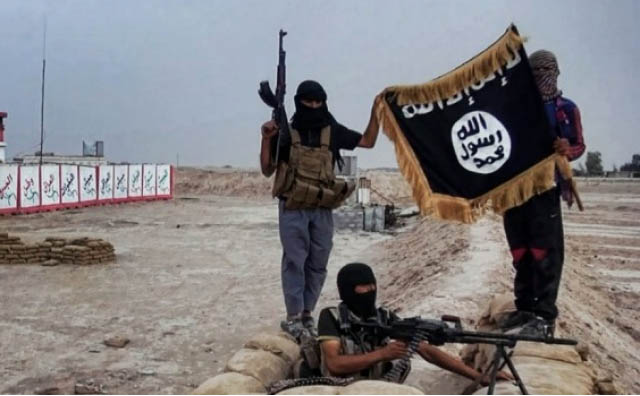With the emergence of the self-proclaimed Islamic State of Iraq and the Levant (ISIL), Afghan nation fell at the mercy of immense violence and militancy. The individuals’ rights and dignity were violated to a great extent on the grounds of their caste, creed, color, etc. and sectarianism broke out in restive parts of the country. As the graph of civilian casualties raised, a sense of fear and frustration spread among the public.
Since the Taliban elements splintered with the revelation of Mullah Omar’s death and appointment of Mullah Akhtar Mansour as a leader, a number of Taliban fighters pledged allegiance to the ISIL group – this strengthened the ISIL outfit to gain firm foothold in the country. Some officials also believe that most fighters calling themselves ISIL are disaffected Taliban members. The ISIL loyalists had held some remote districts in the country’s east for almost a year.
John Campbell, the former US and NATO commander in Afghanistan, said earlier this month that there were between 1,000 and 3,000 ISIL fighters in the country. Indeed, some Afghan people suffered painfully and/or lost members of their families in ISIL-dominated areas and some Afghan soldiers were killed in the worst possible way.
As a result, the fighters decapitated them in cold blood and left notes saying the bodies had to be left on display for some time, and anybody who moved them would get the same punishment. “If they found an Afghan army soldier, they would behead him and then put the head on the stomach,” a villager is quoted as saying. It is further said that many schools were closed down and students were warned not to attend classes.
However, President Muhammad Ashraf Ghani said, in early March, that Afghanistan would be a “graveyard” for the ISIL fighters as he announced that Afghan forces had dislodged fighters loyal to the group from regions of Nangarhar province bordering Pakistan. The government claimed victory over ISIL-linked fighters in the country’s east.
The spokesman for US forces in Afghanistan said earlier that ISIL sought to establish a base in Nangarhar province on the southern border with Pakistan but the Afghan forces carried out successful operation against the militant group in the southern city of Jalalabad, Nangarhar. He said that they had been pushed back largely to the southern parts of Nangarhar province. “That area is very, very rugged, it’s very mountainous, it’s on the border with Pakistan, and that’s where most of the Daesh in Nangarhar currently is.”
The deadly attacks which are being carried out across the region by terrorist groups must be an eye-opener for Afghan government. For instance, the Tuesday’s attacks on the Brussels airport and subway system, which killed 31 people and wounded 270, the Nov. 13 attacks that left 130 dead in Paris and the attacks on Bacha Khan University in Pakistan by Tahreek-i-Taliban Pakistan (TTP), that took the life of at least 21 people and the Friday’s attack in Baghdad which killed 30 people – including the town’s mayor – and wounded 65 others, will have to be great lesson for the government. Similarly, the Taliban’s last year spring offensive, that inflicted heavy casualties on Afghan soldiers and civilians, must not be repeated in the New Year.
Luckily, Afghanistan has adopted the right strategy towards ISIL fighters. This soil will be “graveyard” for them and the US-backed Afghan soldiers carried out effective military operations against them. Since ISIL fighters intend to impose their warped minds on people on the barrel of gun and spill the blood of innocent individuals on the grounds of their race, color, sex and beliefs, no strategy will be helpful other than military deal.
Despite the government’s strict counterinsurgency mechanism, the US officials believe that Afghanistan will encounter great challenges in the New Year. UN Nicholas Haysom, the Secretary-General’s Special Representative for Afghanistan said that the Afghan government will face tough time politically and divided political elite in Kabul, “which it needs to manage, particularly in the interest of developing a greater level of political coherence among the political class and the political elite in Kabul, especially if it’s going to generate a sense of confidence in the future and build the morale of the people and the security forces”.
The world must consider the fact that terrorist networks, mainly the ISIL outfits, are serious threats against the entire humanity and therefore, orchestrate heavy attacks in different parts of the world – be it east or west. In other words, if a global counterterrorism strategy does not be launched; western countries will fall in the same boat as the Middle East or at least witness heavy terrorist attacks – the same as Brussels and Paris – every once in a while.
There is fear that the Taliban will resume their spring offensive and ISIL group may usher in greater operations. However, it is the government to tackle the security crisis and intensify the forces to keep battling against mounting insurgency.
It is hoped that the heads of the National Unity Government (NUG) will make compromise on each and every issue to earn the public trust and boost the morale of the soldiers. Political conflicts in state’s machinery must be buried. Moreover, the international community will have to support Afghanistan in counterinsurgency and the world, mainly the neighboring countries, have to join forces to root out terrorism and eradicate their hubs.
Home » Opinion » ISIL – A Global Threat
ISIL – A Global Threat
| Hujjatullah Zia

